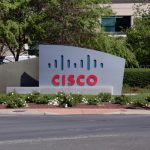Payment processor Worldpay agrees to $10 billion acquisition offer from Vantiv

The UK's biggest payment processor, Worldpay Group, has agreed to the terms of an acquisition offer from US rival Vantiv. News of the $10 billion (£7.7 billion) deal sent Worldpay's share price tumbling; while the planned takeover values shares at 385p, they quickly dropped to 368p.
Just days ago, Worldpay revealed it had been approached with offers from Vantiv and JPMorgan, and the latter has now ruled itself out of making an official bid. Vantiv's takeover of Worldpay would see the US company spreading into Europe with its POS and online payment services.
Imagination Technologies is up for sale after being ditched by Apple

Back in April, Imagination Technologies revealed that it had been dropped by Apple and would therefore no longer be supplying GPU chips for use in iPhones, iPads and other products. Now, having lost 70 percent of its value, the UK company is putting itself up for sale.
Shares in Imagination fell dramatically after Apple ditched it, but news of the sale led to a jump of 21 percent. The company is valued at around £425 million ($538 million) and the announcement comes after several parties expressed interest in an acquisition of Imagination Technologies Group plc in its entirety.
There goes the neighborhood, as snobby 'better-thans' wait for their Whole Foods drone deliveries

My first reaction to Amazon buying Whole Foods is "Huh?" Few brands could be any more different. The online retailer is all about giving customers the most for the least amount spent, while the grocer is the pricey purview of the alt-organic lifestyle elite. No moment is better metaphor for Whole Foods' clientele than the exchange I heard between a thirtysomething couple standing at the deli holding chicken luncheon meat. "Is it free range?" the women asked her husband. It had to be, or she wouldn't buy. They argued. I silently chuckled: luncheon meat—not a bird! It's all pressed meat, Honey. You do know that?
But from another perspective, and one transcending retail store presence, are other considerations, like brand affinity and buyer demographics. For the first, Amazon may be all about value, but in an increasingly middle-class and well-to-do demographic kind of way, particularly among city dwellers. Despite sharing similar cut-throat margin, expansive business philosophies with Walmart, Amazon doesn't carry the same stigma among the socially conscious "better-thans". For the second, who do you think plunks down 99 bucks a year for Prime membership or can't wait for two-day free delivery or is too busy to go to the store to buy groceries? Without hard numbers to back the supposition, I'd bet there is lots of existing and potential regular shopper overlap among these customers and those who walk Whole Foods' aisles.
Amazon to buy Whole Foods as its grocery store revolution continues

Amazon's increasingly overt and aggressive push into the grocery retail market has officially gone into full-blown, alarm-blaring fever-pitch mode today as its plans to acquire the brick-and-mortar chain Whole Foods was publicly announced.
Under the terms of the tentative deal, Amazon will pay $42 per share of Whole Foods stock for a total purchase price of $13.7 billion. At the end of trading yesterday, Whole Foods was going for around $33 per share, making Amazon's offer represent a reasonable 27 percent premium.
Yahoo is now officially Verizon's problem and Marissa Mayer waves goodbye
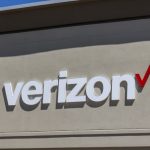
Verizon today reveals that it has completed the acquisition of Yahoo, nearly a year after announcing the deal. Big red initially agreed to pay $4.83 billion, but after the massive security breach that resulted in over one billion hacked accounts was disclosed to the public the value dropped to $4.48 billion.
What is interesting is that Yahoo will not operate as an individual subsidiary, as you might expect. Instead, Verizon will combine it with AOL under a different brand, called Oath, which it describes as a "diverse house of more than 50 media and technology brands that engages more than a billion people around the world."
Microsoft buys cybersecurity startup Hexadite
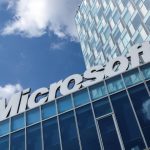
Microsoft is rumored to have acquired Israeli cybersecurity startup Hexadite in a deal worth around $100 million.
The startup was founded in 2014 and its primary focus is identifying cyberattacks through the use of artificial intelligence (AI). By connecting a number of cybersecurity detection systems that are already in place, Hexadite then uses AI to analyze threats automatically as they present themselves.
Riverbed buys Xirrus

Riverbed recently announced it's buying Xirrus for an undisclosed sum of money. The former is a company that builds SD-WAN products and generally looks to improve and optimize WANs. Xirrus, on the other hand, builds next-gen Wi-Fi networks.
With the new acquisition, Riverbed will be able to offer its customers "the power of unified connectivity and policy-based orchestration that spans the entire distributed network -- WAN, LAN/WLAN, data center and the cloud."
Why you need cyber security checks during a merger or acquisition

2016 was a record setting year for data breaches and hacks. In the last few months of the year Yahoo began making headline news for all the wrong reasons with two stories around how it was the victim of the largest cyber-attack in history, which saw one billion accounts being compromised. Making this situation all the more worst for Yahoo, was the fact that it was in the process of being acquired by Verizon.
This hack in fact has resulted in Verizon paying $350 million less for Yahoo and receiving confirmation from Yahoo’s board that any future legal costs or reparations will be jointly covered. The bad news of companies across the globe is that Yahoo’s attack is likely to only be the beginning. As cyber attacks escalate in both their volume and size the dangers to companies looking at acquiring others rises.
Intel buys Mobileye to boost self-driving car efforts
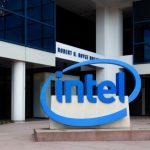
Intel is serious about becoming an important player in the self-driving car market. After teaming up with various companies, including car makers, to develop and promote solutions for autonomous vehicles, it's now taking things to the next level by acquiring Mobileye.
Mobileye, in case you are not familiar with it, is best known for supplying the technology (like sensors and cameras) used in Tesla's first-generation Autopilot. Intel will spend just over $15bn to buy the Israeli company.
Avaya sells networking business to Extreme Networks

Extreme Networks agreed to acquire Avaya’s networking business for roughly $100 million. Avaya, a company that went private in 2007, is struggling with bankruptcy. It filed to restructure under Chapter 11 bankruptcy protection in January. It also said it was looking for ways to monetize some of its assets.
Extreme Networks said Avaya’s networking business is in line with its strategy for growth, and that it will help broaden its portfolio across different verticals.
HPE buys Nimble for $1bn

Hewlett Packard Enterprise (HPE) says it came to an agreement with Nimble Storage to acquire it for approximately $1 billion in cash.
HP Enterprise should assume, or pay out, Nimble’s unvested equity awards, with a value of $200m, at closing. According to Wall Street Journal, the deal has roughly a 41 percent premium to Nimble’s $700m market value.
Cisco acquires intelligence software company AppDynamics
Microsoft buys 3D optimization company Simplygon
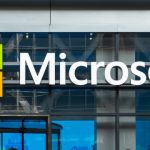
As part of its new "3D for Everyone" strategy, Microsoft has announced that it will acquire the 3D optimization vendor Simplygon.
The company's corporate vice president of Next Gen Experiences Kudo Tsunoda revealed the acquisition intended to help boost its own 3D efforts. The Swedish company Simplygon will play a large role in allowing Microsoft to simplify the process of allowing its users to capture, create and share in 3D.
Citrix acquires Unidesk for its layering technology
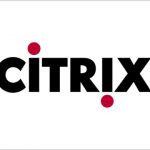
Citrix has announced that it has acquired Unidesk, a company that created layering. The technology allows for the separation of Windows applications from the operating system.
The value of the acquisition was not disclosed. What we do know, however, is that we can expect a much tighter cooperation between Microsoft and Citrix.
Pebble shutting down following Fitbit acquisition
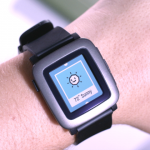
Fitbit has acquired fellow wearables maker Pebble. The transaction includes "specific assets" like key employees and software-related intellectual property, but not Pebble's hardware. Why? Because Fitbit is not interested in keeping the lights on for long.
Pebble will soon close down shop, as it has announced, "due to various factors" that prevent it from operating on its own. This means that its smartwatch manufacturing has come to an end as well. The company is not taking any new orders and it will refund Kickstarter backers who have shelled out for three of its latest products.
Recent Headlines
Most Commented Stories
BetaNews, your source for breaking tech news, reviews, and in-depth reporting since 1998.
Regional iGaming Content
© 1998-2025 BetaNews, Inc. All Rights Reserved. About Us - Privacy Policy - Cookie Policy - Sitemap.
